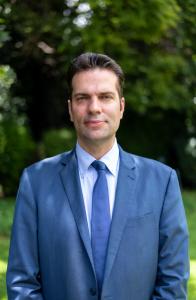What implication does this historical election have and what could this mean for the current political landscape?
Gregor Jaecke: The election result has a historic dimension and meaning for the country. The ANC, South Africa's ruling party since 1994, has not only suffered a devastating election defeat, but has also lost its absolute majority by a significant margin. This heraldsthe end of one-party rule in the country and the beginning of an era of coalition governments at national and provincial levels. However, voters largely did not opt for parties from the center-right but remained loyal to the left of the political spectrum by voting for radical populist splinters of the ANC - such as the Economic Freedom Fighters (EFF) or Zuma's MK party. As far as the latter is concerned, its strong performance is a surprise that many experts did not expect to this extent. Even though its stronghold is in former President Zuma's home province of KwaZulu-Natal, his new party has also gained support in other parts of the country and therefore cannot be dismissed as a purely local phenomenon. In other words, his strong support suggests a broader support for the party beyond its regional and ethnic boundaries. However, the MK party is divided within itself, and it remains to be seen whether it will prove capable of governing at all. What is certain, however, is that Zuma and his party stand for everything that the country currently need least: corruption, theft, impunity, anti-rule of law, expropriation without compensation, nationalization of banks and mines and a division of South African society.
The country is at a political crossroads following the historic vote and in the coming days, the ANC’s party dynamics and Cyril Ramaphosa’s ability to retain his position as leader of the ANC will be course-defining after the catastrophic election result for the ruling party (which also came as a surprise to the former liberation movement). With this poor election result, the ANC's well-known infighting could break out again and Cyril Ramaphosa could possibly be replaced by an intra-party rival (speculation is rife about the person of Deputy President Paul Mashatile). There is currently great political uncertainty about the future of the country.
In addition, the possibility of political violence and social unrest (comparable to that in mid-2021 following Zuma's brief imprisonment) cannot be ruled out. In the province of KwaZulu-Natal in particular, it remains to be seen whether the supporters of Zuma's MK party are subject to the (false) perception that they have been robbed of an even higher election victory by the electoral commission through vote rigging. On 01.06.2024, Zuma publicly questioned the integrity of the electoral process and threatened to challenge the election result.
It is clear that the era of one-party dominance is over for South Africa, however, what political scenarios are now possible for the country?
Gregor Jaecke: Different scenarios regarding the (difficult) formation of a government are conceivable: With Ramaphosa at the helm, a centrist coalition with the economically liberal Democratic Alliance (DA) seems likely. This coalition would be able to break up encrusted structures and initiate reforms that focus on growth and employment. This would create a real opportunity for the country. In terms of foreign policy, this coalition would not distance itself any further from the West. However, to realize such an alliance, political actors would have to overcome personal and substantive rifts. This is because the ANC and the DA are programmatically far apart and have no basis of trust (note: other center-right parties could also be included in this coalition scenario).
However, an alliance between the ANC and the EFF and/or the MK party is also conceivable at national level. In this radical left-wing populist alliance, Ramaphosa would probably no longer be president of the country, and moderate forces within the ANC would be marginalised. This coalition would likely focus on nationalization (including of banks and mines), carry out expropriations without compensation - especially in the agricultural sector - and massively deter investors by expanding state intervention in the private sector. Poverty and inequality would continue to rise in South Africa. Moreover, such an alliance is a danger for the country's social cohesion: the EFF rejects the conciliatory policies of the post-apartheid era and frequently rails against individual population groups within South Africa. In terms of foreign policy, cooperation with Russia and China would be expanded.
What has the election revealed about the South African voter sentiment and what lies ahead for the country?
Gregor Jaecke: The further decline in voter turnout, which reached a historic low this time, is also worrying. Less than 60% of registered voters cast their vote. The low voter turnout not only undermines the legitimacy of elected representatives, but also the democratic decision-making process. It is an expression of a general disenchantment with politics and the most common form of protest to express dissatisfaction with party democracy and the political elite and thus poses a threat to South Africa's young democracy.
The next two weeks (according to the constitution, only 14 days remain for the election of a new president in the national parliament after the announcement of the election result) will be decisive for the future of the rainbow nation.
About this series
Zeitschrift mit Berichten aus Bundestag und Bundesländern, Gastbeiträgen, Rezensionen und Presseauswertungen zur aktuellen Kulturpolitik.




